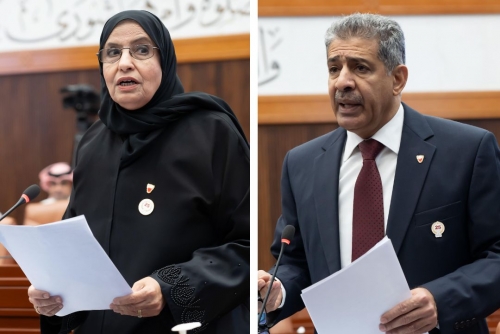2% tax on remittances!
TDT | Manama
Email: mail@newsofbahrain.com
Expat remittances in Bahrain may soon face a 2% tax, with parliament scheduled to discuss and vote on the proposal this Tuesday.
Initially rejected by the Shura Council in January 2024, the tax faced criticism for potentially driving expats toward black markets or cryptocurrencies, threatening Bahrain’s financial stability.
The draft law has undergone several revisions since its first submission in February 2023. The original version proposed a tiered tax system: 1% for transfers under 200 dinars, 2% for transfers between 201 and 400 dinars, and 3% for amounts above 400 dinars. Exemptions were also proposed for investment agreements, capital transfers, and specific cases under Bahrain’s tax rules.
The bill, fronted by Lulwa Al Rumaihi and supported by Dr. Muneer Seroor and three other MPs, aims to reduce Bahrain’s dependence on oil revenue and keep more money circulating locally, giving the economy a boost.
However, the Shura Council’s Financial and Economic Affairs Committee warned that taxing remittances could backfire, leading to an increase in illegal transfers and money laundering. These concerns could undermine Bahrain’s standing as a financial hub in the Gulf. The committee also raised concerns about Bahrain’s international obligations, noting that treaties like the “Unified Agreement for the Investment of Arab Capital in Arab Countries” guarantee the free movement of capital and profits without tax. The bill’s lack of provisions to ensure compliance with such treaties could expose Bahrain to legal disputes.
The committee also flagged practical issues in tracking remittances. Transfers made via apps, digital wallets, or foreign-issued cards could complicate enforcement. Furthermore, the draft law lacks penalties for violations, making it difficult to ensure compliance.
Despite these concerns, Parliament remains determined to push the bill through. Following the Shura’s rejection, its Financial and Economic Affairs Committee recommended moving forward with the plan, albeit with some revisions to clarify language. Terms like “foreigners” were changed to “every natural foreign person,” and ambiguous terms like “borders” were removed.
The Ministry of Finance and National Economy also expressed concerns, warning that the lack of detail in the bill could harm Bahrain’s ability to attract investment and skilled workers. The Central Bank of Bahrain further cautioned that low-wage expats might resort to unregulated channels to avoid the tax, potentially undermining anti-money laundering efforts and making Bahrain less competitive compared to tax-free neighbours.
With these details in place, the fate of the proposal will be decided on Tuesday.
sfgdsg
Related Posts


